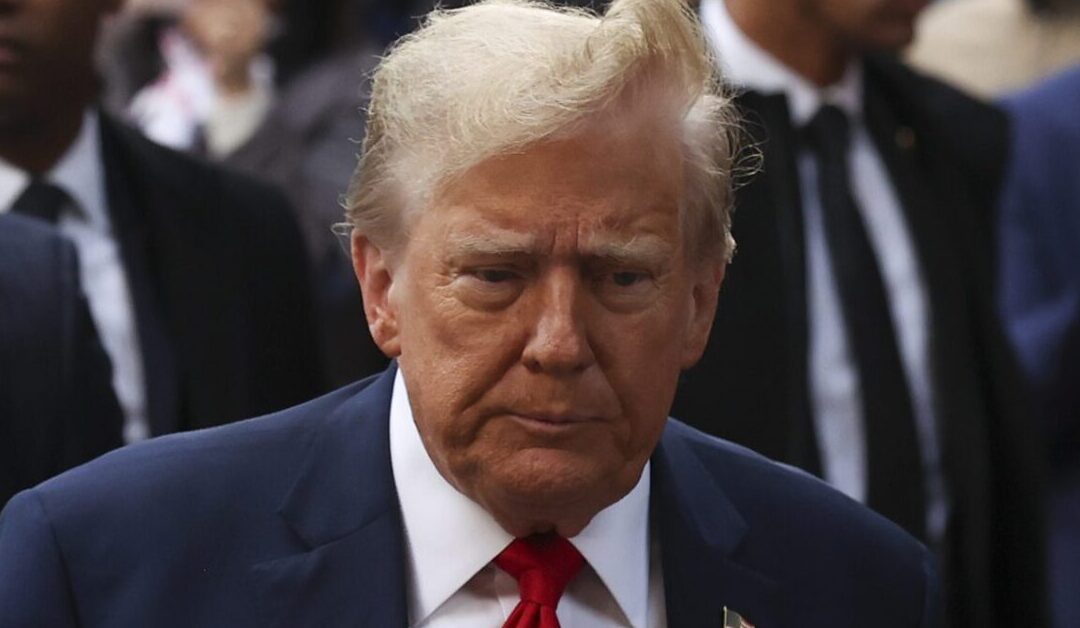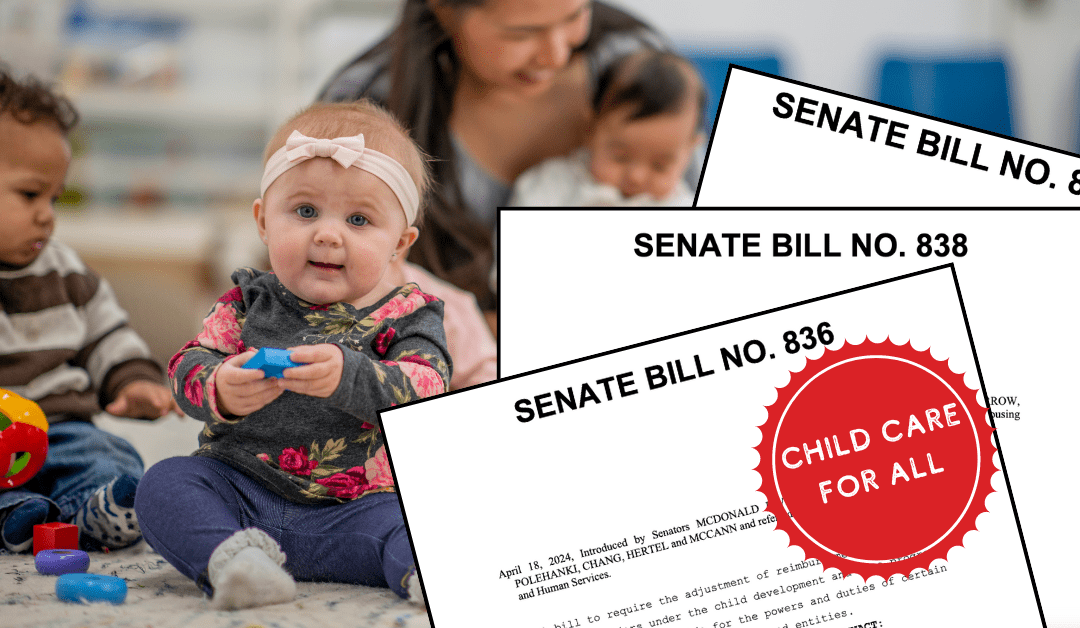
Photo: Andreas Rentz/Getty Images
MICHIGAN—Heading into the election, Ann Arbor public school teacher Frances Lazette worried about how extremism could impact her profession—and the children she teaches. Lazette, a French teacher at Scarlett Middle School, was particularly wary of GOP candidates across the ballot pushing culture war ideas.
“I think there was the potential for a lot of teacher censorship and curriculum censorship, depending on how election results went out,” Lazette told The ‘Gander.
Lazette’s fears stemmed from rhetoric espoused by many GOP candidates. From Tudor Dixon, the Republican candidate for governor who proposed legislation banning drag queens from schools and a law that mimicked Florida’s “Don’t Say Gay Bill,” down to local school board candidates backed by the extreme conservative group Moms for Liberty, drastic ideological change to Michigan’s public schools was a hallmark of the GOP platform in the 2022 midterm election.
Democrats, on the other hand, ran on a largely pro-public education platform. According to the Michigan Democrats’ 2020 party platform, Democratic candidates were in favor of increasing public school funding, supplying schools with the technology and supplies they need, and increasing teacher and support staff pay to match the education and training required of school employees.
Now that the election is over and Democrats have gained control of the governor’s office, the state House, and the state Senate for the first time in four decades, Lazette is “extremely optimistic” that public education will be prioritized.
“There’s been a lot of talk about finally improving education in the state,” she said. “And I think we have the momentum right now and I’m really hopeful that we see a lot of big changes.”
From Classroom to Chamber Floor
The new Legislature includes public school teachers who left their classrooms to help fuel change from the top down. When the new session begins in January, two former public school teachers will be in the state Senate, and the state House will have nine—including newcomers Jaime Churches, Erin Byrnes and Dylan Wegela.
Lazette said she hopes these legislators can bring a realistic view of public schooling to the state government, because the issues facing schools are constantly changing. That’s particularly true in a post-pandemic world, where student mental health is in crisis and teachers must often take on the roles of counselor and caretaker.
“It would be really helpful for people to have a full picture of what schools are expected to do and what they’re able to do with the very little resources that they have,” Lazette said.
A few weeks before the election, The ‘Gander spoke with Jaime Churches, a Democrat and public school teacher who won her race to represent the Grosse Ile and Trenton areas in the state House. She said the state should prioritize investing in teachers, and that the slate of Democratic candidates who ran this year made her optimistic about the state of politics in Michigan.
“I totally believe that growth is coming,” she said. “Growth happens in uncomfortable situations, I think I see that as a teacher. I know all learning occurs from being uncomfortable.”
How Dems Could Change Public Schools
Michigan’s public schools have been on the decline since the early 2000s. According to Bridge, Michigan is one of five states whose students’ reading performance has plummeted since 2003. For Black students, their educational outcomes are disproportionately worse than their white peers. Only 9% of Black students were proficient in fourth grade reading in 2015, compared to 32% of white students. And in a 2017 report, Michigan’s Black fourth-graders ranked last in reading nationwide.
During this decline, Republicans controlled the Legislature and used that power to lift a cap on the number of charter schools Michigan could have. They further passed a law requiring third graders to be held back if they were more than one grade level behind on reading, which many said did more harm than good. The trifecta that Republicans held in Michigan’s government at the time also restricted per-pupil funding to less than what experts said was needed. In 2017-18, the minimum per-pupil allowance was $7,631. That same year, the Michigan School Finance Collaborative calculated that Michigan’s per-pupil amount should be $9,590.
When Democratic Gov. Gretchen Whitmer took office in 2019, she prioritized education, increasing per-pupil funding without raising taxes. But her Republican-majority Legislature continued to focus on charter and private schools, even negotiating a funding boost for charters early in Whitmer’s first term. Despite Whitmer’s education goals, Michigan hasn’t kept pace with other states in funding education.
With a sympathetic Democratic Legislature taking over in January, many teachers say they’re optimistic that public schools will be brought up to speed.
What About the State and Local School Boards?
The Election Day rebuke of conspiracy theorists in Michigan politics continued with the State Board of Education, which helps set statewide policy and curriculum standards—and can hire and fire the state superintendent.
Democrats Pamela Pugh and Mitchell Robinson soundly defeated Republican candidates Linda Tarver and Tami Carlone, maintaining a 5-2 Democratic majority.
While top of the ticket races get the most press, local races often have the most immediate impact on voters. An October 2022 survey by edChoice found that while economic issues dominated voter priorities at the federal and state levels, education was top of mind in local races. Michigan voters last week sent a clear message about who they wanted running the show: Roughly 75% of local school board candidates campaigning on extreme conservative ideas like book bans lost their races.
The book-banning movement had seemingly caught fire in internet circles, reaching its zenith in early October, when Republican candidates for statewide office descended on a Dearborn school board meeting and extremist parents ignored police requests to stop chaotic claims of LGBTQ+ materials being used in classrooms. The results of last week’s election showed that those voices, while loud, are a minority in Michigan.
Not all districts shut out candidates with extreme views, however. In Rockford, for example, candidate Barb Helm won after spreading anti-vax conspiracy theories and falsely claiming that Proposal 3 “legalized pedophilia.” (It does not.)
But that wasn’t the trend. See the so-called “Grand Ledge Kitty Litter Caucus,” which pushed a false and inappropriate claim that schools were putting out litter boxes for kids who identified as cats. Those candidates lost.
Betsy DeVos’ Private School Plan Likely Dead
In August, organizers submitted petition signatures for a school-choice voucher program that would essentially trade tax write-offs for donations and threaten to slash hundreds of millions of dollars in public school funding.
Known as Let MI Kids Learn, the plan was a Betsy DeVos-funded bid seeking to exploit what’s known as a “legislative loophole” to rush the package before the Republican-held Legislature and pass it without the chance of a veto from Gov. Whitmer. But because organizers were two months late in submitting signatures for the November ballot, the issue will now be sent over to a Democrat-controlled state Legislature.
That Legislature now has a clearer picture of what Michigan voters want from public education. And when their session begins in January, voters will expect a new era of education reform to begin with them.
Politics

SEIU workers ahead of NFL Draft: We are ‘the backbone of Detroit’
BY KEN COLEMAN, MICHIGAN ADVANCE MICHIGAN—A day ahead of the National Football League annual draft being held in Detroit, Service Employees...

Investigator says Trump, allies were uncharged co-conspirators in plot to overturn Michigan election
DETROIT—A state investigator testified Wednesday that he considers former President Donald Trump and his White House chief of staff to be uncharged...

Michigan Dems introduce ‘Child Care for All’ legislation to lower costs for families
Lawmakers say Michigan is facing a ‘child care crisis.’ But a series of bills introduced this month would help to make child care (much) more...
Local News

The 10 best burger joints in and around Lansing
Warning: Do not read this list if you missed lunch or you will find yourself hopping in the car to drive to these best burger joints in Lansing. ...

10 unique wedding venues in Michigan to suit every kind of couple
From a distillery in Detroit to a summer camp, we’ve rounded up some of Michigan’s most unique wedding venues. Of all the elements you need to...





